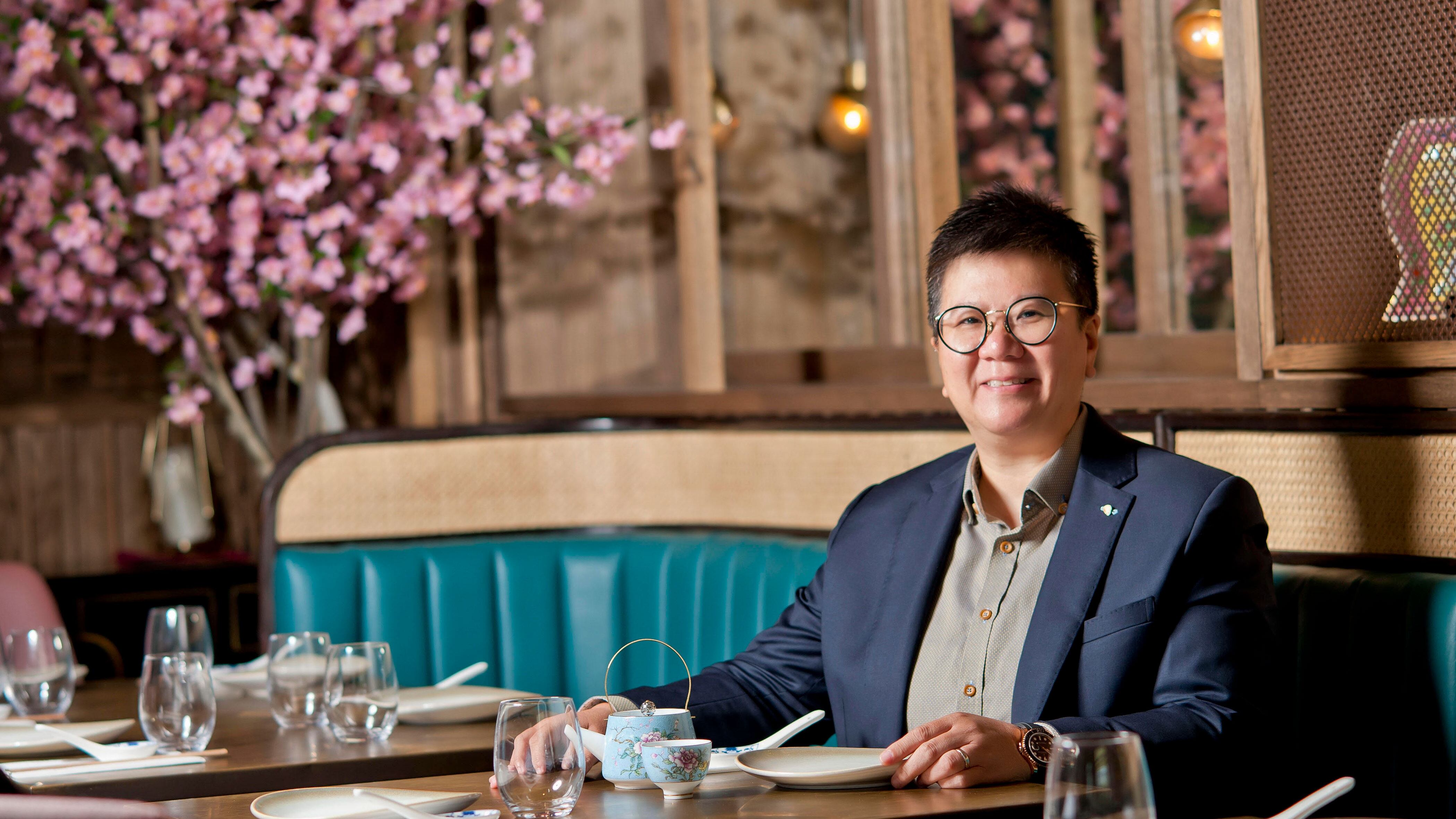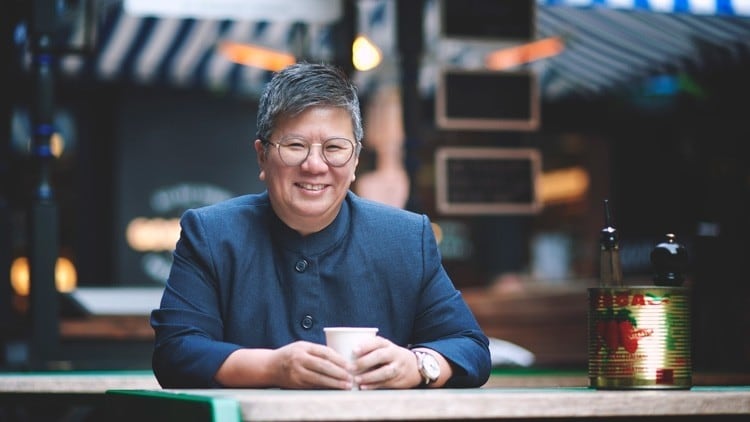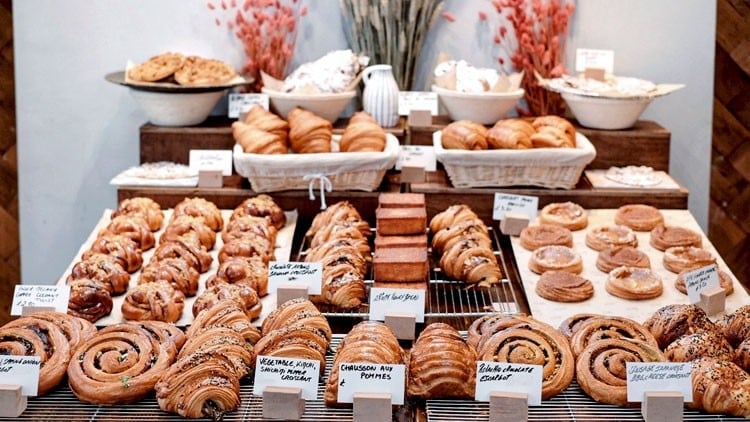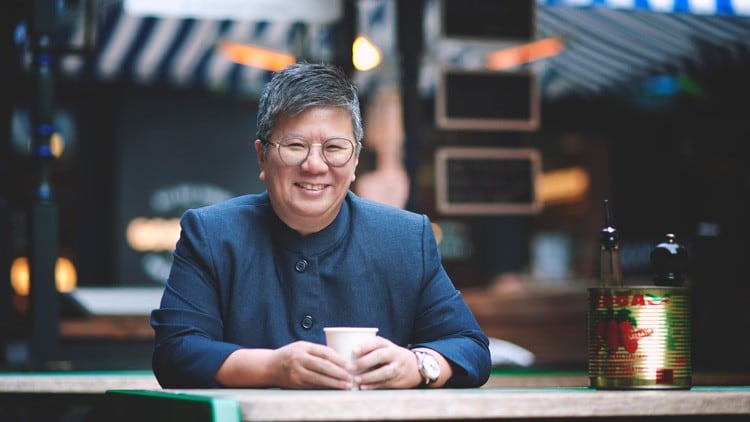Singapulah is very much a milestone opening for Ellen Chew. The Singaporean restaurateur came to London in 2005 having previously worked as a consultant for one of Singapore’s biggest food court operators, Kopitiam. Her first restaurant in the capital, Rasa Sayang, subsequently launched in Chinatown in 2008. Inspired by the bustling hawker scene of Malaysia and Singapore, the restaurant was billed as an ‘authentic representation’ of Straits cuisine and considered something of a trailblazer amid the many cookie cutter places surrounding it that served roast duck and dim sum.
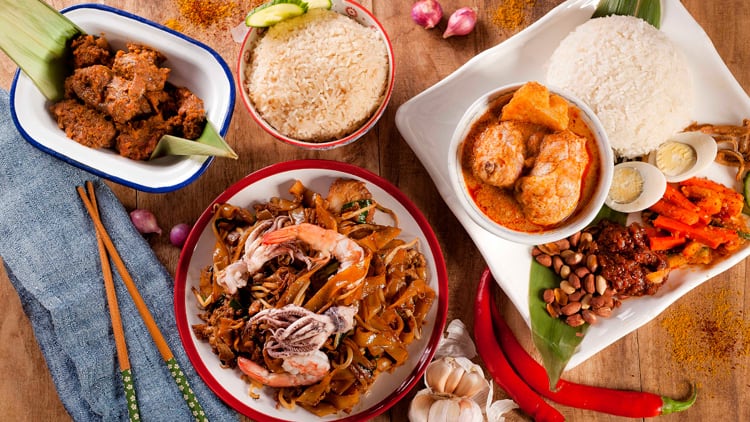
In the intervening years, Chew, working with her business development director Jay Sim, has gone on to establish an expansive portfolio of Asian-focused restaurants across the UK as part of her Chew On This group. They include the Cantonese-focused Mrs Chew’s Chinese Kitchen, which has three sites across London and Birmingham; Shan Shui, a Southeast Asian fusion restaurant that has locations in Bicester Village and Heathrow Airport; and Asian-influenced bakery concept Arôme, which has two sites in London.
Singapulah was a brand Chew originally tested as a pop up alongside Arôme in 2019 in Soho. In its original guise, it was designed to replicate the makeshift nature of Singaporean hawker centre and featured traditional dishes such as bak chor mee and chwee kueh on the menu. Both dishes appear on the menu of Singapulah’s new permanent site, which has just launched on Shaftesbury Avenue, but the concept – Chew’s first to have a dedicated Singaporean focus – has changed a lot.
Working with Enterprise Singapore, the Singapore government agency championing enterprise development, and the Singapore Brand Office, with promotional support from Singapore Tourism Board and Singapore Global Network, Chew and Sim have developed a restaurant that’s designed to uniquely showcase a rotating roster of Singaporean food manufacturers and partner brands through its menu. The idea, as they explain, is to give these producers, many of whom are little known on these shores, the platform to explore opportunities within the UK food market.
What was the inspiration behind Singapulah?
Ellen Chew: Singapore is such a tiny country, but the flavours are very big, and I wanted to showcase the cuisine and show people what our food is all about and immerse them in our culture. I’ve been actively exploring it since we did the pop up back in 2019. Covid caused the plan to be shelved, but it’s better late than never. We’ve opened with a big bang and it’s great that we have the support of the Singaporean Government agencies.
How did it come together?
Jay Sim: We were approached by Enterprise Singapore regarding food manufacturers wanting to tap into the UK market. Many of them don’t have the full gamut of resources here - they know a few restaurant owners and retailers, but don’t know how to bridge it all together. Quickly we realised there was a huge market for manufacturers in Singapore that want to use the UK as a platform for Europe, so we developed the idea where we could feature a rotating roster of food manufacturers on the menu. Our job is to educate people on these brands and the worth they have, and we have a retail element so that diners can buy the ingredients they like to cook with at home. In turn, the manufacturers have the opportunity to test products in a new market, and we can help link the brands’ distributors with potential buyers.
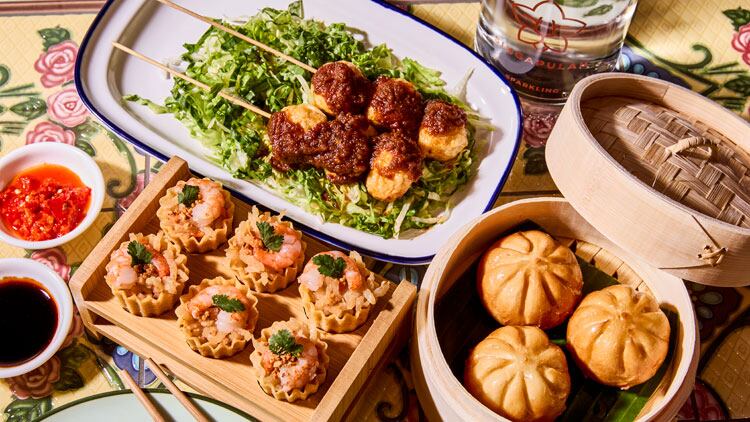
What’s on the menu?
EC: This is the most ambitious project I’ve ever undertaken. I’ve opened plenty of restaurants before, but to bring in these manufacturers and determine the best dishes to showcase their ingredients has been a big learning curve. We’ve also had to take into account that diners will not be familiar with a lot of the products. For the launch, in particular, we’ve made sure that the dishes are quite familiar. There’s laksa made with noodles Leong Guan; and bak chor mee that’s topped with fish balls from DoDo, a global supplier of fish-protein products that was first established the 1970s. Every six months we will have a new batch of manufacturers coming in and will be changing the menu to ensure they have the best opportunity to showcase their product. Some of the key dishes will always be there, but the idea is that regularly changing the menu gives diners the chance to experience the breadth of Singaporean cuisine.
JS: Food innovation will be a big theme for us going forwards. For example, manufacturers creating alternative proteins and those devising ways to produce fresh noodles that can be stocked at ambient temperature.
EC: It’s a long process, and very technical. There are a lot of food manufacturers in Singapore that are export ready that we are partnering with now. But we’re also engaging with smaller producers in Singapore who we think are interesting, and working with them to get them in the same position for the future.
Singapulah’s design is very striking. What can you tell us about it?
JS: The brief was that if you are Singaporean or Southeast Asian, you feel immediately like you’re at home; and if you’re a Westerner or someone who has never been to Singapore, you walk in and want to ask questions and find out more about the culture.
EC: A lot of it is based on personal memories We don’t have a lot of photos, it’s all in our head. We remember the smell, the taste, the colour, and we’ve worked hard to recreate that. For example, the tiles are inspired by the look of void decks, which are the social hub of every housing blocks in Singapore.
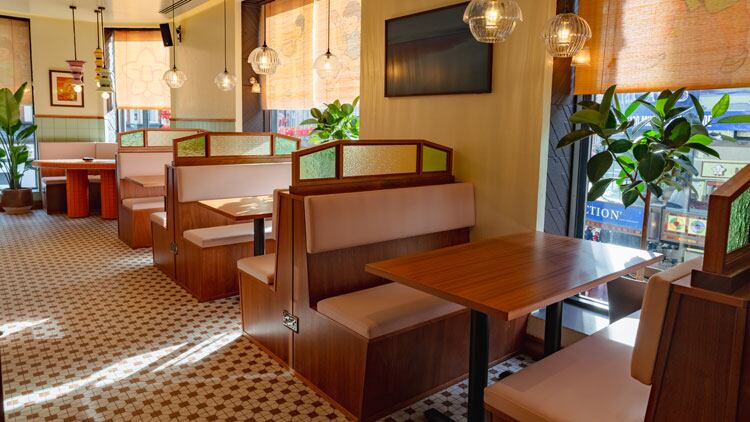
Your other projects include a London site for Shan Shui. How's that getting on?
EC: The plan is to get it up and running this year. I want to launch it by the autumn. There’s been a few setbacks in terms of the planning. It’s a listed building, so there are challenges with the design, which is inspired by 1920s Shanghai.
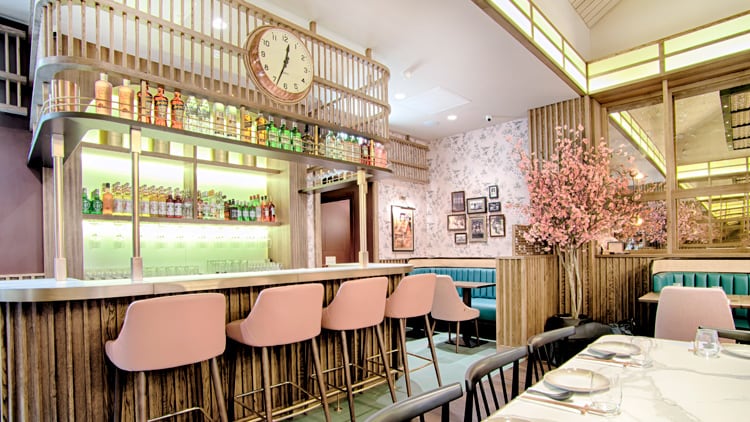
Are there further plans for growth?
EC: We’re hoping that as we progress through the year we can begin looking at expanding our other brands. We have three Mrs Chew’s Chinese Kitchens now and we want to open more. We’re also looking for a third site for Arôme in London. Plus, we’ve begun doing consultancy work. Last year we worked with Empire Casino in Leicester Square and launched a Cantonese brand called 7th Cat. It’s worked really well, so we’re keen to explore more opportunities and grow that area of the business going forwards.

